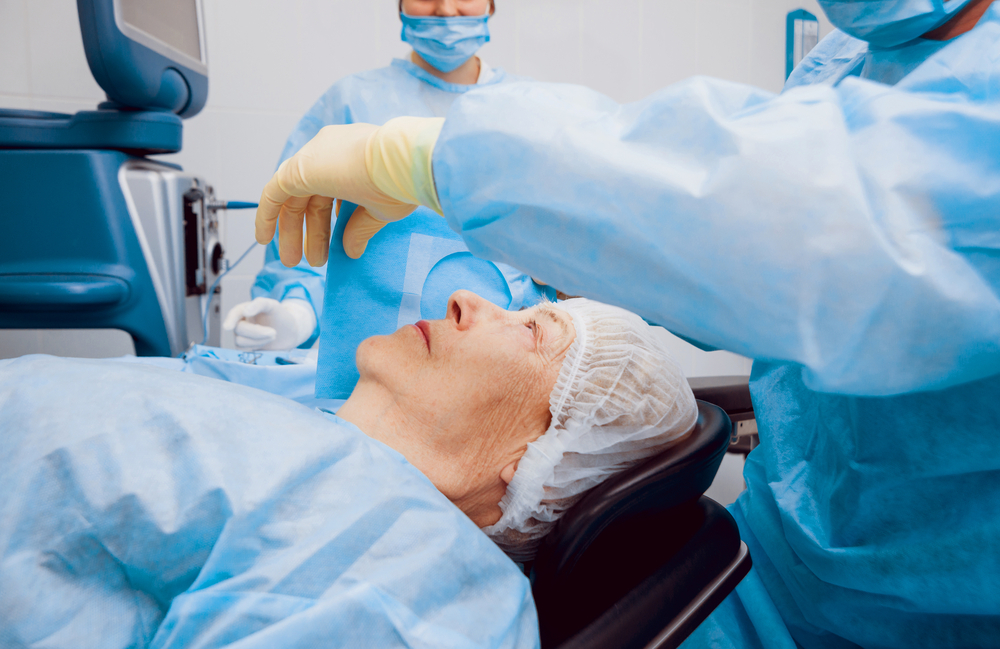
Cataract surgery is a common procedure carried out worldwide to restore vision in people who have been affected by cataracts. This process involves the removal of the natural lens of the eye that has become opaque and is replaced with a synthetic lens. Like any surgical procedure, it is important to be well-informed and prepared for cataract surgery. Having a clear understanding of the process can help alleviate any anxiety you may have and set the stage for a smooth recovery.
What is a Cataract?
A cataract is a condition where the lens of your eye, which is typically clear, becomes clouded. This cloudiness can negatively impact your vision, making it seem as if you're viewing the world through a foggy window. Cataracts develop gradually as we age, and by the time we reach 80, over half of us will either have a cataract or have undergone cataract surgery.
While age is a significant factor in the development of cataracts, other factors can also contribute to their formation. These include diabetes, excessive exposure to sunlight, smoking, obesity, and high blood pressure. Certain medications and previous eye surgery can also increase the risk of developing cataracts.
The Need for Cataract Surgery
The decision to undergo cataract surgery is typically based on the extent to which the cataract affects your daily life. In the early stages, the changes in vision caused by cataracts may not be noticeable. However, as the cataract progresses, your vision may become significantly impaired, affecting your ability to perform everyday tasks such as reading, driving, or even recognizing faces.
For some, the use of updated prescription glasses or brighter lighting may help improve vision. However, if these measures are no longer effective, your eye doctor may recommend cataract surgery. The good news is that cataract surgery is a very successful procedure with a high success rate. It can drastically improve your quality of life, allowing you to regain clear vision and resume your normal activities.
Choosing to undergo cataract surgery is a personal decision. Factors to consider include your level of vision loss, whether it's affecting your daily life, and any other health issues you may have. It's also essential to discuss potential risks and benefits of the surgery with your doctor.
Preparing for Cataract Surgery
Preparation for cataract surgery begins long before the actual procedure. Your eye doctor will perform a comprehensive eye exam to assess the overall health of your eyes and determine the right type of lens for you. You may also be asked about any medications you're taking, as some can increase the risk of bleeding during surgery.
In the week leading up to your surgery, you'll be advised to stop using certain medications and start using antibiotic eye drops to prevent infection. You'll also be asked to fast for a certain period before your surgery.
On the day of your surgery, make sure to arrive on time and wear comfortable clothing. Leave valuables at home and avoid wearing makeup, perfume, or aftershave. Remember to bring someone with you who can drive you home after the procedure.
What to Expect During Cataract Surgery
On the day of your cataract surgery, you'll be given eye drops to dilate your pupil and local anesthesia to numb your eye. You may also receive a sedative to help you relax. You'll be awake during the operation, but you won't feel any pain.
During the procedure, you may notice a bright light - this is the light of the microscope used by your surgeon. You may also feel some pressure in your eye, but this is usually not uncomfortable. After the clouded lens is removed and the artificial lens is inserted, a protective shield may be placed over your eye to keep it safe during the initial stages of healing.
After the surgery, you'll be moved to a recovery area for a short while before you can go home. You'll need someone to drive you home as your vision may be blurry. You'll also be given a set of post-operative instructions to follow to ensure a smooth recovery.
Post-operative Care After Cataract Surgery
Following your cataract surgery, it's crucial to follow the post-operative care instructions provided by your doctor. This will typically involve using prescribed eye drops to prevent infection and inflammation and wearing an eye shield while sleeping for a few days to protect your eye.
You will need to avoid strenuous activities and heavy lifting for a few weeks after the operation. It's also important to avoid rubbing or pressing on your eye. You'll be given a schedule for follow-up visits to monitor your recovery and ensure your eye is healing correctly.
Although everyone's recovery time varies, most people notice an improvement in their vision within a few days of the surgery. However, it can take up to a month for your vision to fully stabilize.
The Benefits and Importance of Preparing for Cataract Surgery
Cataract surgery is an effective and safe procedure that can significantly improve your quality of life by restoring your vision. Understanding what the procedure involves, what to expect, and how to prepare can help ensure a successful outcome and smooth recovery.
The decision to undergo cataract surgery is a personal one and should be made after thorough discussion with your eye doctor. By being well-prepared and informed, you can approach your cataract surgery with confidence and look forward to a brighter, clearer world post-surgery.
To learn more on what to expect and how to prepare for cataract surgery, visit Harmony Eyecare & Eyewear Gallery at our office in Harmony, Pennsylvania. We believe in the importance of delivering the highest quality optometry services. Please call (724) 453-4926 to schedule an appointment today.







